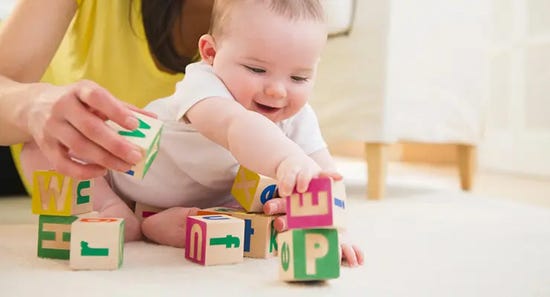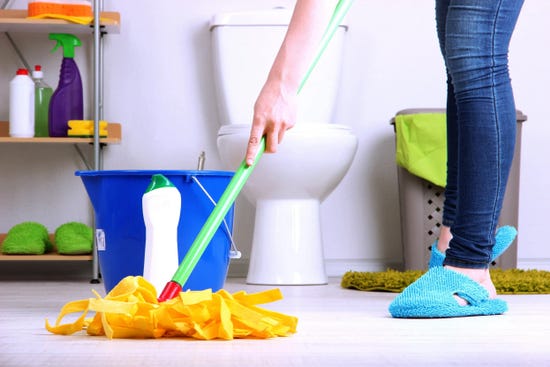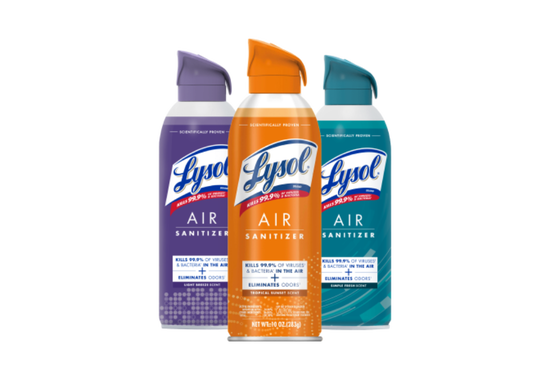
It's All About the 5 Healthy Habits you can Instill at Home
As a parent, you naturally want your kids to grow up healthy and happy. This means staying diligent about things like immunizations and checkups, teaching them about germ prevention, and giving them a good foundation for healthy eating and fitness.
HEALTHY HABITS = HAPPIER KIDS
Developing healthy habits does more than help your kids battle potential weight issues. Overall good health can strengthen your child’s immune system and reduce the chances of catching cold, flu, and other illnesses.
Healthy children are happier, too. Encourage your children to participate in healthy habits by reminding them that if they’re sick, they won’t feel well enough to enjoy their favorite foods or activities.
HABIT 1: CATCHING SOME QUALITY Z’S
Children are naturally inclined to resist bedtime, but ensuring adequate sleep is vital. Well-rested people are not only happier and more alert, they’re also better able to fend off germs. A typical child should get 9 to 10 hours of sleep a night.
You can help encourage healthy rest by creating and sticking to a routine. Performing a series of familiar activities leading up to bedtime will make sleeping a habit, rather than an undesirable activity to be avoided.
HABIT 2: MOVING AND GROOVING
Another way to help kids stay healthy—and make bedtime easier—is to make sure they’re getting enough activity. Children who spend a lot of time in sedentary activities, like computer or television time, aren’t expending enough energy to get tired or burning enough calories to stay physically fit.
Encourage kids to enjoy active play, such as riding bikes or jumping rope, or engaging in less energetic (but still active) indoor activities, like dancing. One way to get physical is to have regular family fitness activities, like nature walks or bike rides.
HABIT 3: POWERING UP WITH DOWNTIME
While it’s important for kids to remain active and learning, they also need some time to recharge and just be a kid. Providing your child with enough unstructured downtime has a number of benefits:
- Encourages creativity and imagination
- Helps to burn off excess energy
- Relieves the stress of responsibilities
- Helps to develop self-reliance and social skills
HABIT 4: BREAKING THE SUGAR CYCLE
Feeding your child a nutritious diet helps to keep them physically fit, and creates healthy eating habits that will stay with them into adulthood. Remind them of how important it is to eat breakfast every day. Skip the sugary cereal in favor of wheat or bran cereal, oatmeal, fruits, whole grain toast or muffins, eggs, and other power foods.
If possible, pack your children’s school lunches with nutritious choices from all the food groups, or talk to them about making healthy choices in the cafeteria. Enjoy a family meal in the evening so you can reconnect while setting an example for healthy eating.
Also, help your child develop a habit of drinking plenty of water throughout the day. Stress the importance of increasing water consumption in the summer, especially after strenuous activities.
HABIT 5: GETTING SQUEAKY CLEAN FROM HEAD TO TOE
Personal hygiene habits begin forming at an early age. Teach your child the importance of proper washing and regular bathing, in addition to frequent hand washing throughout the day. In addition, make sure your child is practicing good oral health by:
- Brushing at least twice a day
- Flossing daily (you can help children under 8 with flossing)
- Visiting the dentist regularly
- Limiting sugary snacks and drinks that can cause tooth decay
Regular shampooing and hair care is also important. For young children, shampooing every few days is fine, but pre-teens and adolescents should wash their hair daily. As a parent, be on the lookout for head lice, a very common and contagious infection that’s often caught at school. If your child’s school reports an instance, you should check your child every 3 to 4 days for signs of head lice. Also, remind kids not to share items that are used on or near the head, such as hats or scarves, combs and brushes, and bike helmets.
By reinforcing these habits at home, you’ll give your children a strong foundation for a long and healthy life.









.png?width=550&height=377&format=png&quality=80)

.png?width=550&height=377&format=png&quality=80)
.png?width=550&height=420&format=png&quality=80)
.png?width=550&height=377&format=png&quality=80)
.png?width=550&height=377&format=png&quality=80)
